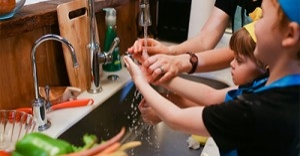

The Learning To Write Posters show the experiences children engage in that will benefit them in writing. The activities mentioned in the posters will support children in developing their writing. These are great to display within the learning environment.
The Yoga Poses For Children Posters illustrate 16 different yoga poses/asanas for children to practice. Each poster demonstrates the child's yoga pose/asana, followed by the yoga pose name in English and Sanskrit. These are great to be used as a display or refer to when teaching children.
When children practise yoga it increases their confidence, builds concentration and strengthens growing bodies. For children with behavioural issues, yoga can improve their impulses in a positive direction and provides them with an outlet as a way to manage their behaviour.
The Healing Foundation’s Stolen Generations Resource Kit for Educators and Children has been created to educate young people about the Stolen Generations. It makes it easy for the community to start the conversation and inform discussions using facts, real examples and stories.
On 9th May 2022, The Australian Building Codes Board published the preview of the National Construction Code 2022 for early childhood services. Most of the emphasis is on extra security measures of the risks associated with evacuating children from multi-storey buildings. These key changes will be adopted and implemented on 1 September 2022.
Loose parts is a term used in early childhood learning to include such objects and materials that kids can move, control and change in numerous ways. Loose parts provided an opportunity for children to express creativity through the use of materials that can be manipulated, transformed, and created through self-guided play. The following article provides information of Examples of Loose Parts, The Benefits of Loose Parts, Links To Theorists and The EYLF, Loose Parts Activity Ideas and more.
STEM can be understood as an integrated learning approach that introduces Science, Technology, Engineering and Mathematics through play and everyday activities. The following article provides information on Understanding STEM, How To Teach STEM, Benefits Of STEM, Stem Activities and more.
The Early Years Learning Framework outlines Intentional Teaching as one of the major practice guidelines to promote children’s learning. Intentional teaching involves actively planning and acting with specific goals or outcomes for children’s learning in mind. The following provides information on Intentional Teaching Definition, Intentional Teaching Strategies, Intentional Teaching Examples and Benefits Of Intentional Teaching.
Biting is typical behaviour of infants and toddlers that we often notice. As the children grow up and gain self-control and self-regulation, gradually they stop biting. The following article provides information on Common Reasons For Biting, Responding To Biting, Strategies and more.
Play comes naturally and effortlessly to young children. It is self-driven, active and intrinsically enjoyable. Along with helping children pass through appropriate developmental stages and negotiate their way through the immediate environment, the play also enables the externalization of feelings and mastery over emotions. In this way, play becomes the source and medium of therapeutic powers which facilitate or mediate change in the child. According to research, therapeutic powers of play can be understood in four broad categories.
The open playroom concept is to provide a more flexible approach for children to empower them to make self-decisions as much as possible. Ruth Harper, Education Lead at EastWest Childcare and Kindergarten in Fitzroy, Victoria said that sometimes the concept of an open classroom is misjudged and it keeps changing with the pedagogy. Ruth says, children are being allowed to take decisions by themselves but depending on “which equipment they engage with when they eat and rest, and who they play with. It’s all about us meeting children where they are at.”
 As of 2024–2025, new national regulations across Australia have significantly tightened restrictions on smoking and vaping in and around early childhood education and care (ECEC)… Read More
As of 2024–2025, new national regulations across Australia have significantly tightened restrictions on smoking and vaping in and around early childhood education and care (ECEC)… Read More
 The Australian Government Department of Education has engaged ORIMA Research to conduct an online ECEC Staff Survey. By collecting this data over time, the Department… Read More
The Australian Government Department of Education has engaged ORIMA Research to conduct an online ECEC Staff Survey. By collecting this data over time, the Department… Read More
 Australian Food Safety Week offers a vital opportunity to embed safe food practices into early learning environments. This year’s theme invites educators and children to… Read More
Australian Food Safety Week offers a vital opportunity to embed safe food practices into early learning environments. This year’s theme invites educators and children to… Read More
© 2009-2025 Aussie Childcare Network Pty Ltd. All Rights Reserved.

